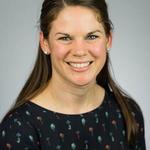
LOCAL
Minnesota’s Food Processing Workers Eligible for COVID-19 Vaccination
Employees working at food processing plants in Minnesota have been designated as targeted essential workers and are now eligible for COVID-19 vaccination. The designation affects approximately 44,000 frontline food plant workers who are "instrumental in protecting our food supply chain which is not only critical to feeding American families, but also to our national security", according to a statement from Tamara Nelsen, the executive director of AgriGrowth.
Because of the limited vaccine supply, phased distribution to eligible groups has followed a precise calculus at the state level. Designation of eligibility for Minnesota workers was based on the guidance by the CDC's Advisory Committee on Immunization Practices which defined frontline essential workers as the subset of essential workers likely at highest risk for work-related exposure to COVID-19. Further sub-prioritization was based on the risk criteria published by the National Academies of Sciences, Engineering and Medicine’s Framework for Ethical Allocation of COVID-19 Vaccine.
Food and agricultural workers, processes, and facilities have been heavily impacted throughout the epidemic. Several meatpacking plants closed temporarily during spring 2020 because of outbreaks among employees who worked and lived in conditions conducive to virus transmission and challenging to practice social distancing. Jayson Lusk, an agricultural economist at Purdue University, estimates that 9,000 agricultural workers in the US have died of COVID-19, and analyses indicate that nearly a half-million have been infected.
Stay Safe, Minnesota
NATIONAL
US Diverts and Monitors Air Passengers from Countries with Ebola Outbreaks
Air passengers arriving from the Democratic Republic of the Congo (DRC) and Guinea face public health measures announced by the US Centers for Disease Control and Prevention (CDC) in response to the outbreaks of Ebola Virus Disease in each country. The restrictions require that all flights entering the US with passengers who were in either of the two countries within 21 days land at one of six designated airports. Airlines are required to collect and transmit contact information to the CDC for those passengers, which will be given to state and local health officials for subsequent monitoring and follow-up. The CDC states that such restrictions are implemented out of an abundance of caution and only a small number of travelers are impacted by these measures.
The outbreaks in West Africa are responsible for a reported 29 cases with 13 deaths in the DRC and Guinea. A devastating outbreak in Guinea, Liberia, and Sierra Leone caused more than 11,000 deaths in 2013-2016.
Viral analysis suggests that the current outbreaks may have been initiated by human rather than animal reservoirs of disease. This is surprising: it is thought that few human infections persist longer than six months and Guinea had not had an outbreak in five years. Some scientists point out that a small, unrecognized chain of human-to-human transmission could connect the two outbreaks, rather than a single individual with a persistent, dormant infection. In any case, measures to prevent long-term transmission must be carefully implemented and communicated to avoid exacerbating the stigma already faced by Ebola survivors.
ProMED
CDC
Science
INTERNATIONAL
United Nations Statistical Commission Adopts Ecosystem Accounting Standard
Last week, the United Nations Statistical Commission adopted a new set of principles for evaluating economic prosperity and human wellbeing. This framework-- known as SEEA EA, or the System of Environmental-Economic Accounting- Ecosystem Accounting-- goes beyond the traditional metric of Gross Domestic Product (GDP) to include the contributions of ecosystem services, also called natural capital. The goal of this revised accounting framework is to recognize, measure, and value how nature affects humans and how human economic activities in turn affect nature. The adoption follows a 3-year process that involved 100 experts and 500 reviewers from across disciplines and countries.
The Ecosystem Accounting approach will be useful for addressing tradeoffs between policy objectives. For example, those wishing to compensate low-income and marginalized communities for protecting nature now have an internationally agreed template to work from. The accounting standards are voluntary, but UN endorsement encourages governments to include valuation of nature in economic decision-making and provides a way to do so with the same confidence as when calculating GDP as a measure of economic production.
The adoption of SEEA EA embodies the global momentum toward recognizing ecosystems as an asset that must be preserved for sustainable economic growth. Several timely scientific assessments include The Economics of Biodiversity: the Dasgupta Review, another by the Intergovernmental Science-Policy Platform on Biodiversity and Ecosystem Services, and a just-published study in Nature Sustainability. Research is turned into action through work such as that by the World Bank to incorporate natural capital into national economic monitoring and policy, and movement by private companies and investors to utilize incentives that recognize the value of biodiversity, habits, and ecosystem.
Nature editorial
UN SEEA
The Economist
